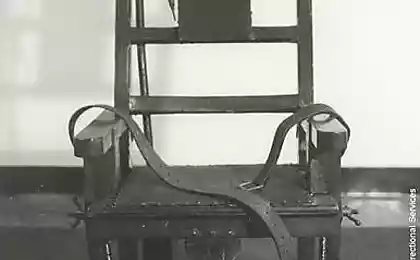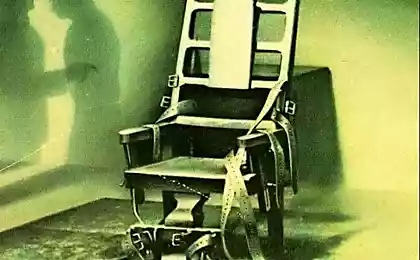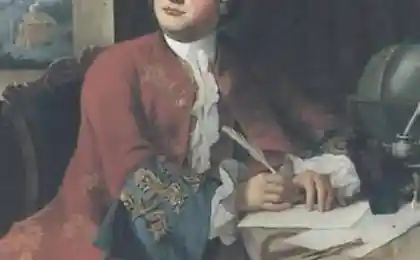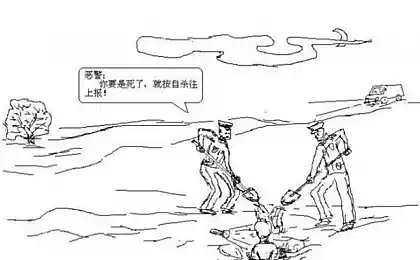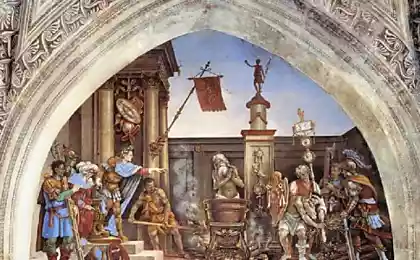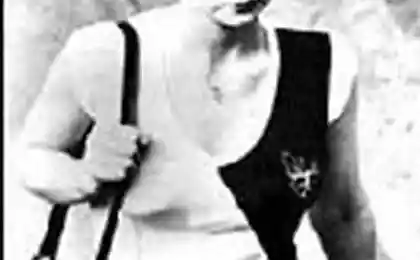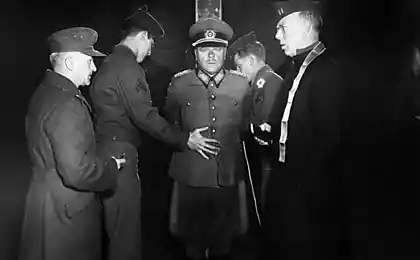443
Why Mikhail Lomonosov was sentenced to death
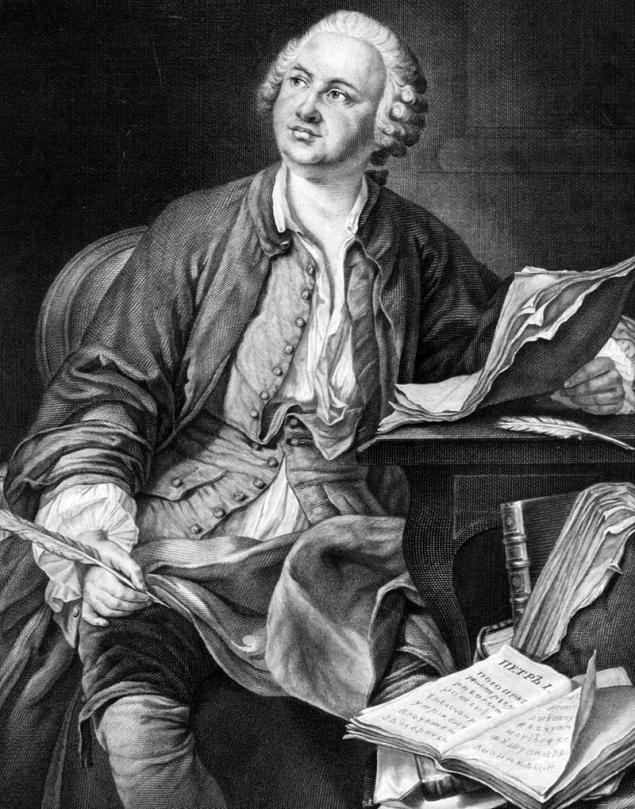
Who was interested in stealing Mikhail Lomonosov’s scientific library and in concealing, and most likely destroying, his many manuscripts, which he worked on throughout his life?
Lomonosov fell into disgrace because of his disagreements with German scientists, who in the XVIII century were the backbone of the Academy of Sciences. Under Empress Anna Ioannovna, a flood of foreigners poured into Russia.
Beginning in 1725, when the Russian Academy was established and until 1841, the foundation of Russian history was remade by the following “benefactors” of the Russian people who arrived from Europe, who spoke poorly Russian, but quickly became connoisseurs of Russian history:
Kohl Peter (1725), Fisher Johann Ebergard (1732), Kramer Adolphe Bernhard (1732), Lotter Johann Georg (1733), Leroy Pierre-Louis (1735), Merling Georg (1736), Brem Johann Friedrich (1737), Tauber Johann Gaspar (1738), Krusius Christian Gottfrieder (1740), Moderach Karl Friedrich (1749), Stretter Johann Gottgilf (1779), Hackman Johann Friedrich (1817), Henry Friedricht (1897), Jorne Friedricht Jorne Friedricht (17), J. J. J. J. J. Friedrichtsssssherne Friedricht (J. 1834), J. Friederne Friedricht (J. J. J. 1834), J. Friedricht (17), J. J. J. J. J. J. Friedricht (J. Kr. J. J. J. J. Friedr. J. J. Friedr. J. The brackets indicate the year of entry of the named foreigner into the Russian Academy.
The ideologists of the Vatican turned their eyes to Russia. Without too much noise, at the beginning of the XVIII century, the future creators of Russian “history”, who later became academicians, G.F. Miller, A.L. Schlozer, G.Z. Bayer, and many others, went to St. Petersburg one by one. In the form of Roman “blankets” in their pockets they lay: and “Norman theory”, and the myth of feudal fragmentation of “Ancient Rus” and the emergence of Russian culture no later than 988 AD and other nonsense. In fact, foreign scientists with their research proved that "the Eastern Slavs in the IX-X centuries were savages, rescued from the darkness of ignorance by the Varangian princes." It was Gottlieb Siegfried Bayer who put forward the Norman theory of the formation of the Russian state. According to his theory, “a handful of Normans who arrived in Russia in a few years turned the dark country into a powerful state.”
The irreconcilable struggle against the distortions of Russian history was led by Lomonosov and he found himself in the thick of this struggle. In 1749-1750 he opposed the historical views of Miller and Bayer, as well as the German-imposed "Norman theory" of the formation of Russia. He criticized Miller’s dissertation “On the Origin of the Name and People of Russia”, as well as Bayer’s works on Russian history.
Lomonosov often quarreled with foreign colleagues who worked at the Academy of Sciences. In some places, his phrase is quoted: “What vile evils such a beast admitted into them will not roam in Russian antiquities!” It is alleged that the phrase is addressed to Schlozer, who “created” Russian “history”.
Lomonosov was supported by many Russian scientists. A member of the Academy of Sciences, an outstanding Russian machine builder A.K. Martov filed a complaint to the Senate about the dominance of foreigners in Russian academic science. Martov's complaint was joined by Russian students, translators and stationery, as well as the astronomer Delil. It was signed by I. Gorlitsky, D. Grekov, M. Kovrin, V. Nosov, A. Polyakov, P. Shishkarev.
The meaning and purpose of their complaint are quite clear: the transformation of the Academy of Sciences into a Russian one is not merely by name. The commission set up by the Senate to investigate the charges was headed by Prince Yusupov. The Commission saw in the speech of A.K.Martov, I.V.Gorlitsky, D.Grekov, P.Shishkarev, V.Nosov, A.Polyakov, M.Kovrin, Lebedev, and others a “riot of the mob” rising against the authorities [215], p.82.
The Russian scientists who filed the complaint wrote to the Senate: “We have proved the charges on the first 8 counts and will prove the other 30 if we get access to the cases” [215], p.82. “But ... for ‘persistence’ and ‘insulting the commission’ were arrested.” A number of them (I.V. Gorlitsky, A. Polyakov, etc.) were shackled and “planted on a chain”. They were in this position for about two years, but they were never forced to recant. The decision of the commission was truly monstrous: Schumacher and Taubert should be awarded, Gorlitsky executed, Greek, Polyakov, Nosov brutally punished with lashes and sent to Siberia, Pova, Shishkarev and others under arrest until the decision of the future President of the Academy.
Formally, Lomonosov was not among those who filed a complaint against Schumacher, but all his behavior during the investigation shows that Miller was hardly mistaken when he asserted: “Mr. adjunct Lomonosov was one of those who filed a complaint against Mr. Schumacher’s adviser and thus caused the appointment of an investigative commission.” Not far from the truth was Lamansky, who claimed that Martov’s statement was written for the most part by Lomonosov. During the work of the commission, Lomonosov actively supported Martov. It was this that caused his violent clashes with the most diligent Schumacher's cleavers - Winzheim, Truscot, Miller.
The Synod of the Orthodox Christian Church also accused the great Russian scholar of distributing anticlerical works in the manuscript. 18 and 149 of the Military Article of Peter I, which provided for the death penalty. The clergy demanded the burning of Lomonosov. Such severity, apparently, was caused by the too great success of free-thinking, anti-church works of Lomonosov, which testified to a noticeable weakening of the authority of the Church among the people. Archimandrite D. Sechenov, the confessor of Empress Elizabeth Petrovna, was seriously alarmed by the decline of faith and the weakening of interest in the church and religion in Russian society. Characteristically, it was Archimandrite D. Sechenov in his libel on Lomonosov who demanded the burning of the scientist.
The Commission stated that Lomonosov “for repeated incivil, dishonest and repugnant acts both towards the Academy and the Commission, and towards the German Land” would be subject to death penalty, or, in extreme cases, punishment with lashes and deprivation of rights and status. By decree of Empress Elizabeth Petrovna, Mikhail Lomonosov was found guilty, but released from punishment. His salary was only halved, and he had to apologize to the professors “for the abominations he had committed.”
Gerard Friedrich Miller himself composed a mocking "repentance", which Lomonosov was obliged to publicly pronounce and sign. Mikhail Vasilyevich, in order to be able to continue scientific research, was forced to abandon his views. But the German professors were not satisfied. They continued to push for the removal of Lomonosov and his supporters from the Academy.
Around 1751, Lomonosov began work on Ancient Russian History. He sought to refute the theses of Bayer and Miller about the “great darkness of ignorance” that allegedly reigned in ancient Russia. Of particular interest in this work is the first part – “On Russia before Rurik”, which sets out the doctrine of the ethnogenesis of the peoples of Eastern Europe and, above all, the Slavs-Rus. Lomonosov pointed to the constant movement of the Slavs from east to west.
German historians decided to remove Lomonosov and his supporters from the Academy. This “scientific activity” has developed not only in Russia. Lomonosov was a world-renowned scientist. He was well known abroad. Every effort was made to defame Lomonosov before the world scientific community. At the same time, all funds were put into use. They tried in every possible way to downplay the importance of Lomonosov’s works not only in history, but also in the field of natural sciences, where his authority was very high. In particular, Lomonosov was a member of several foreign Academies - the Swedish Academy since 1756, the Bologna Academy since 1764 [215], p.94.
"In Germany, Miller inspired speeches against Lomonosov's discoveries and demanded his removal from the Academy" [215], p.61. That was not possible at the time. However, Lomonosov’s opponents managed to achieve the appointment of Schlezer as Academician for Russian History [215], p.64. "Schlezer ... called Lomonosov "a rude ignorant who knew nothing but his chronicles" [215], p.64. So, as we see, Lomonosov was blamed for the knowledge of Russian chronicles.
Quote
“Despite Lomonosov’s protests, Catherine II appointed Schlezer an academician. In doing so, he did not merely obtain for inconclusive use all the documents in the Academy, but the right to demand everything he considered necessary from the Imperial Library and other institutions. Schlezer received the right to present his works directly to Catherine. In the draft note, compiled by Lomonosov “for memory” and accidentally avoided confiscation, the feelings of anger and bitterness caused by this decision are clearly expressed: “It is bad to protect. It's all open to Schlezer the madman. There are more secrets in the Russian library" [215], p.65.
Miller and his associates had full power not only in the university in St. Petersburg, but also in the gymnasium, which trained future students. The gymnasium was led by Miller, Bayer and Fisher [215], p.77. In the gymnasium, the teachers did not know the Russian language. The students didn't know German. All the teaching was exclusively in Latin. For thirty years (1726-1755) the gymnasium has not prepared a single person for admission to the university.[215], p.77 The following conclusion was drawn from this. It was stated that “the only way out is to expel students from Germany, since it seems impossible to prepare them from Russians anyway” [215], p.77.
This struggle continued throughout Lomonosov’s life. “Thanks to the efforts of Lomonosov, several Russian academicians and adjuncts appeared in the academy” [215], p.90. However, "in 1763, according to the denunciation of Taubert, Miller, Stelin, Epinuss and others, another Empress of Russia Catherine II "even sovietly dismissed Lomonosov from the Academy" [215], p.94.
But soon the decree of his resignation was canceled. The reason was the popularity of Lomonosov in Russia and the recognition of his merits by foreign academies [215], p.94. However, Lomonosov was removed from the head of the geographical department, and Miller was appointed there instead. An attempt was made to “transfer to Schlezer’s order material Lomonosov in language and history” [215], p.94.
The latter fact is very significant. If even during the life of Lomonosov attempts were made to get to his archive on Russian history, what can we say about the fate of this unique archive after the death of Lomonosov? Predictably, Lomonosov’s archive was immediately confiscated after his death and vanished. The Archive of Lomonosov, confiscated by Catherine II, is forever lost. On another day, after his death, the library and all Lomonosov’s papers were ordered by Catherine to be taken by Mr. Orlov, transported to his door and disappeared without trace.’ [215], p.20. Thaubert's letter to Miller is preserved. In this letter, without concealing his joy, Taubert reports on the death of Lomonosov and adds: On another day after his death, Count Orlov ordered to attach seals to his office. Without a doubt, it must contain papers that do not want to be released into the wrong hands" [215], p.20.
The death of Mikhail Lomonosov was also sudden and mysterious, and there were rumors of his deliberate poisoning. Obviously, what could not be done publicly, his many enemies accomplished secretly and secretly.
Thus, the “creators of Russian history” – Miller and Schlezer – reached the Lomonosov archive. Of course, these archives disappeared. On the other hand, after a seven-year period, Lomonosov’s work on Russian history was finally published – and it is quite clear that it was under the full control of Miller and Schlezer. It's just the first volume. Probably rewritten by Miller in the right way. And the rest of the volumes simply disappeared. It so happened that the “Lomonosov’s work on history” at our disposal today coincides in a strange and surprising way with Miller’s view of history. It is not even clear why Lomonosov argued with Miller so fiercely and for so many years. Why accused Miller of falsifying Russian history, [215], page 62, when he himself, in his published History, agrees so obediently with Miller on all points? He satisfies him in every line.
Quote
Published by Miller on “Lomonosov drafts” the history of Russia, we can say, written under a blueprint, and practically does not differ from the Miller version of Russian history. The same applies to another Russian historian, Tatishchev, again published by Miller only after Tatishchev’s death! Karamzin, however, almost verbatim rewrote Miller, although the texts of Karamzin after his death were repeatedly subjected to editing and alteration. One of the last such alterations occurred after 1917, when all information about the Varangian yoke was removed from his texts. Obviously, in this way, the new political power tried to smooth out the discontent of the people from the domination of foreigners in the Bolshevik government.
Therefore, under the name of Lomonosov, it was not at all what Lomonosov wrote on the case itself. It is to be assumed that Miller had great pleasure in rewriting the first part of Lomonosov’s work after his death. So to say, “carefully prepared for the press.” Destroyed the rest. Almost certainly there was a lot of interesting and important information about the ancient past of our people. Something that neither Miller, nor Schlezer, nor other “Russian historians” could ever publish.
The Norman theory is still held by Western scientists. And if we recall that for criticizing Miller, Lomonosov was sentenced to death by hanging and spent a year in prison waiting for the verdict until the tsarist pardon came, then it is clear that the leadership of the Russian state was interested in falsifying Russian history. Russian history was written by foreigners, especially for this purpose issued by Emperor Peter I from Europe. And already in the time of Elizabeth, the most important “chronicler” was Miller, who became famous also for the fact that hiding behind the imperial charter, traveled to Russian monasteries and destroyed all surviving ancient historical documents.
The German historian Miller, the author of a “masterpiece” of Russian history, tells us that Ivan IV was from the Rurik family. Having made such an uncomplicated operation, it was not difficult for Miller to end the Rurik family with their non-existent history to implant in the history of Russia. Rather, cross out the history of the Russian kingdom and replace it with the history of the Kiev principality, then make a statement that Kiev is the mother of Russian cities (although Kiev, according to the laws of the Russian language, was supposed to be the father). The Ruriks were never tsars in Russia, because such a royal family never existed. There was a rootless conqueror Rurik, who tried to sit on the Russian throne, but was killed by Svyatopolk Yaropolkovich. The forgery of Russian history catches the eye immediately when reading “Russian” “annals”. The abundance of names of princes who ruled in different places of Russia is striking, which are given to us as the centers of Russia. If, for example, a prince of Chernigov or Novgorod appeared on the Russian throne, then there must be some continuity in the dynasty. And this is not the case, that is, we are dealing either with a hoax or with a conqueror who reigned on the Russian throne.
Our disfigured and perverted history of Russia, even through the thickness of multiple Miller hoaxes, cries out for foreign domination. The history of Russia, as well as the history of all mankind, was invented by the above-mentioned “specialists-historians”. They were not only specialists in the falsification of stories, they were also specialists in the fabrication and forgery of chronicles.
As one of our community members Lyudmila Shikanova correctly noted in her comment: It is becoming increasingly clear that Russian history has been deliberately distorted. There is much evidence of the high culture and literacy of our ancestors in ancient times. There were found birch bark letters written in Glagolitic (our native alphabet, not in the Cyrillic alphabet imposed on us) and letters written by ordinary peasants. But somehow it's hiding. We know the detailed history of our country only from the reign of the Ruriks, and we know almost nothing about it. Why this is done and who benefits from it, that is the question.
And now in our schools and higher educational institutions, students and students study the history of Russia using textbooks, largely written on the money of overseas philanthropist George Soros. He who pays for the banquet, orders music!
Author: V.I. Zhiglov
Source: rusvic.ru
Source: /users/1077
Amaranth— healing properties, recipes and use
When parallel worlds collide, quantum mechanics is born
